Fiona Slater, Head of Access and Equity, caught up with parent and autism awareness champion, Claire Madge, who has been bringing her family to Early Birds since their inception over 10 years ago.
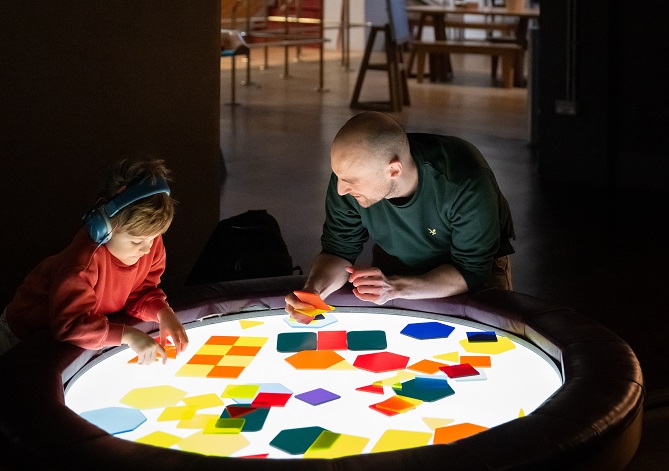
Fiona: Can you tell us about your journey advocating for accessibility and autism awareness in museums?
Claire: I don’t think becoming an autism advocate was ever something I planned, like many families with autistic and neurodivergent children, life took a bit of a different turn. In 2013 I had 3 children under 10 and I was finding it increasingly difficult to balance work and home life. My children are now 20, 17 and 14 and they all have autism or ADHD diagnoses, but I remember in those early days how isolating it was to realise regular family activities don’t work for you.
I began volunteering in museums as a bit of time for me. I love museums and I could see how much they can offer visitors. From the first visit to Early Birds I could see how important family time was when everything else was so challenging. My volunteering in museums game me a unique perspective into how small changes can make museums more accessible and welcoming to autistic families.
Fiona: Reflecting on your children’s first Early Birds experience in 2013, what were your initial impressions of the Science Museum’s approach to accessibility at the time?
Claire: When we first visited in 2013 I was not aware of any other museum or gallery running sessions like Early Birds. It was the first time we had all visited the museum even though we live just outside London.
I remember staff being calm, friendly and welcoming. Striking that difficult balance of not being ‘over friendly’ and giving us space to enjoy the museum.
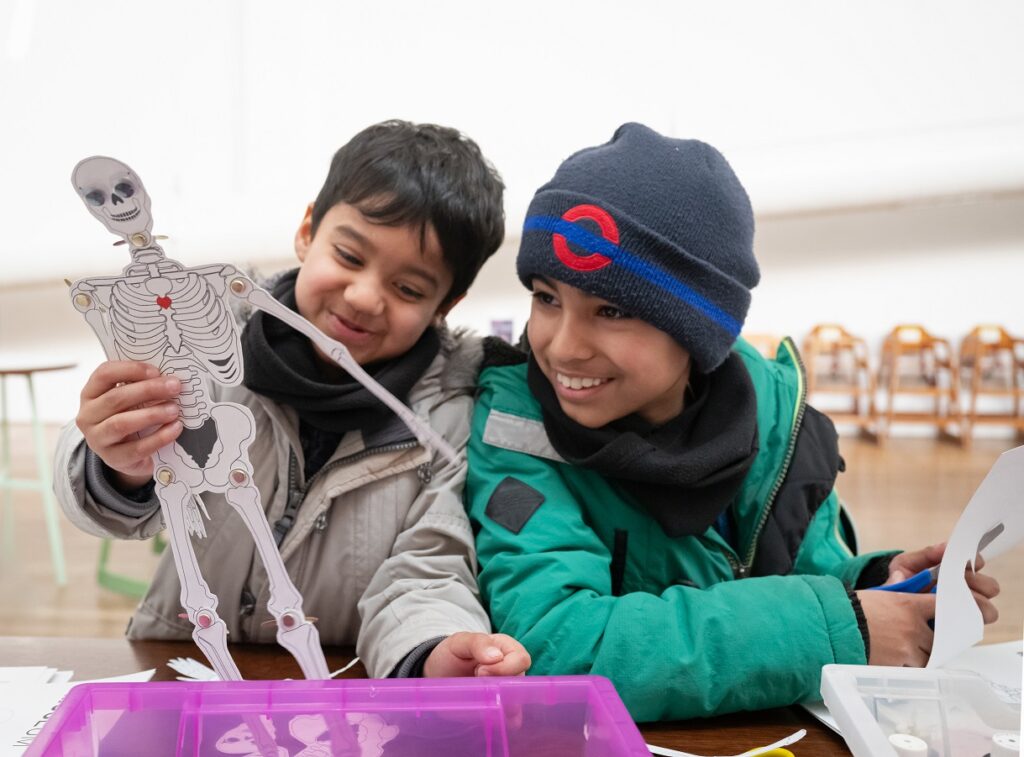
Fiona: Over the past decade, how have you seen Early Birds evolve to better serve neurodiverse visitors and their families? What do you think has made this program so impactful?
Claire: I have seen changes over the past 10 years. Making the events become more regular and consistent has been important, allowing families to plan and build on their experiences. The Science Museum listened to feedback and introduced after-hours events in summer offering flexibility since early mornings don’t work for everyone.
Events for 16+ are another great addition. The audience for those initial Early Birds events in 2013 has grown up! My eldest is now 20, she still loves museums but supportive environments for over 16s are limited.
The programme is so impactful because it is a permanent feature of the Science Museum’s offer. The regular exposure to travelling in London, visiting a large building, experiencing sensory stimulation and managing expectations builds up over time and becomes more achievable.
In the summer of 2024 my son and I slept over in the Science Museum at SENsory Astronights. It was such a magical moment, I doubt either of us will forget and I have no doubt it was possible because of all our previous visits that have built a sense of trust over the years.
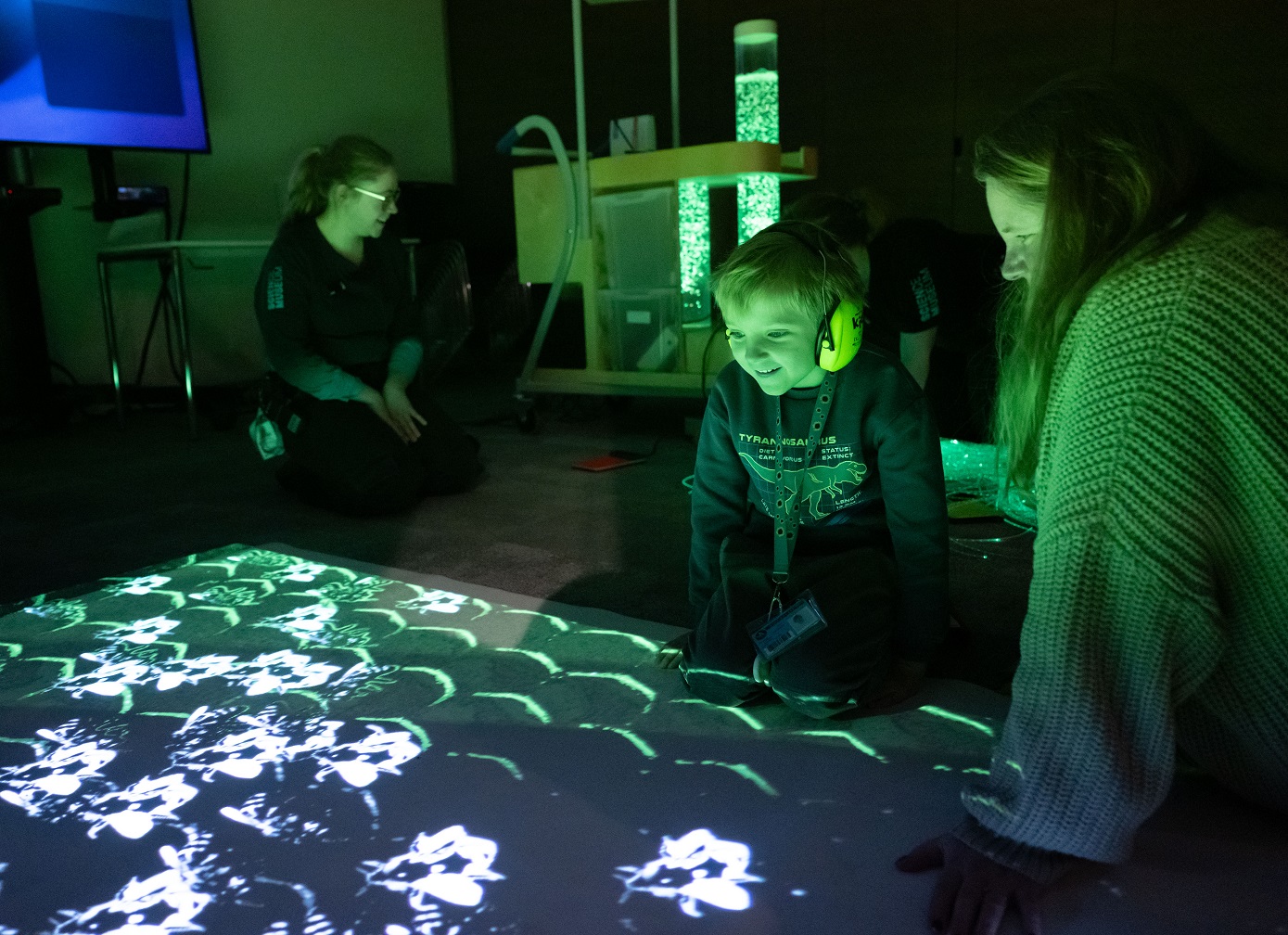
Fiona: You’ve mentioned in your work that sensory-friendly programming can be transformative for families. Can you share some moments or feedback from other families that have stayed with you?
Claire: I meet families visiting the museum for the first time because of these events and they often say they couldn’t visit at any other time because of the crowds.
In 2022 I worked with the museum on a sensory map and spoke to families who said Early Birds meant they weren’t in ‘survival mode’ so they could engage with the activities. It highlights the hidden stress that parents and carers face when visiting during regular hours.
One parent describe the events as being among ‘her people’, calling other visitors ‘our tribe’ because of the lack of judgement. That sense of community and understanding is a key success factor.
Fiona: Your eldest child, Bella, started attending Early Birds in 2013 aged nine. Now in her 20s, how has her experience with Early Birds (and subsequently the extension of the programme for the >16s, Night Owls) impacted her relationship with museums and cultural spaces as she’s grown up?
Claire: As parents and carers for neurodivergent children we rarely take a moment to look back see all the little things that make a positive difference to our children’s happiness and opportunities.
Early Birds and the relaxed events have had a huge impact on Bella. She has shared her experiences with other cultural spaces, speaking at the Horniman Museum Access Advisory Group about visual stories and writing about preparing for visits to the Old Vic Theatre.
Bella now reviews films and writes for a magazine, drawing on her cultural experiences. We couldn’t be prouder of her.
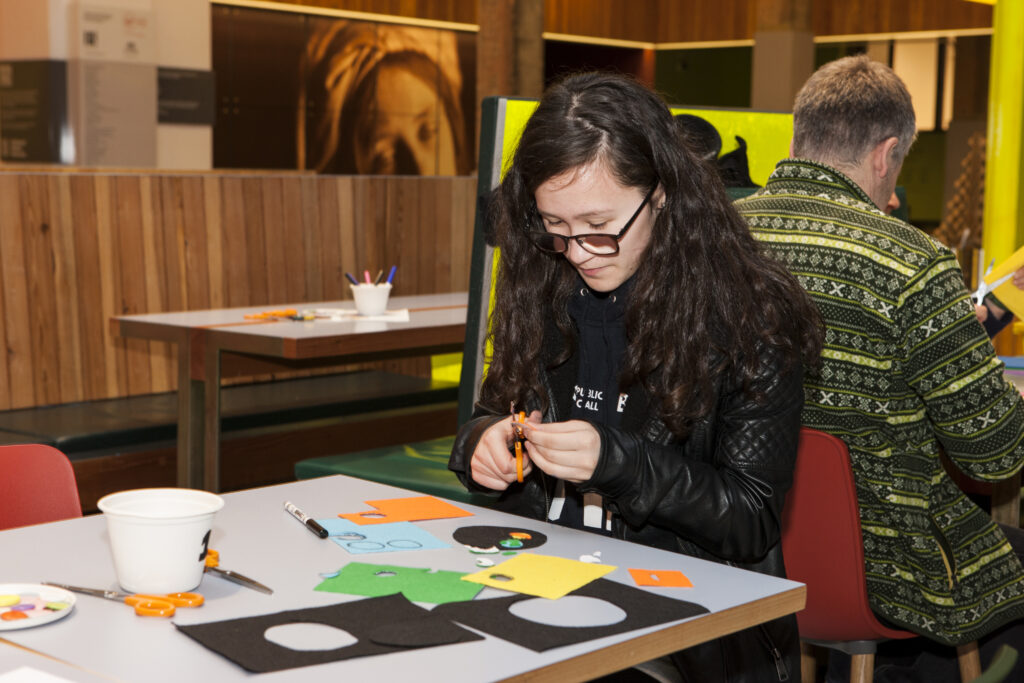
Fiona: Your writing and social media frequently highlights innovative accessible programming in museums. What do you think other institutions can learn from each other?
Claire: The Science Museum has always shared its knowledge and expertise, which is crucial for moving the sector forward. Being honest about successes and challenges inspires other places to critically examine their accessibility. Recently the Science Museum hosted one of my ‘Autism in Museums Meet Ups’ and they took time to walk through their temporary exhibition with the group to show how changes could be made to make it accessible for an Early Birds event. That kind of knowledge is so helpful.
Also building an audience takes time. A small museum might only welcome only a few families to an event, but for those families it can be life changing. Ultimately I think consistency is a key approach to learn from the Science Museum, and most importantly talking and listening to your audiences to keep your programmes relevant.
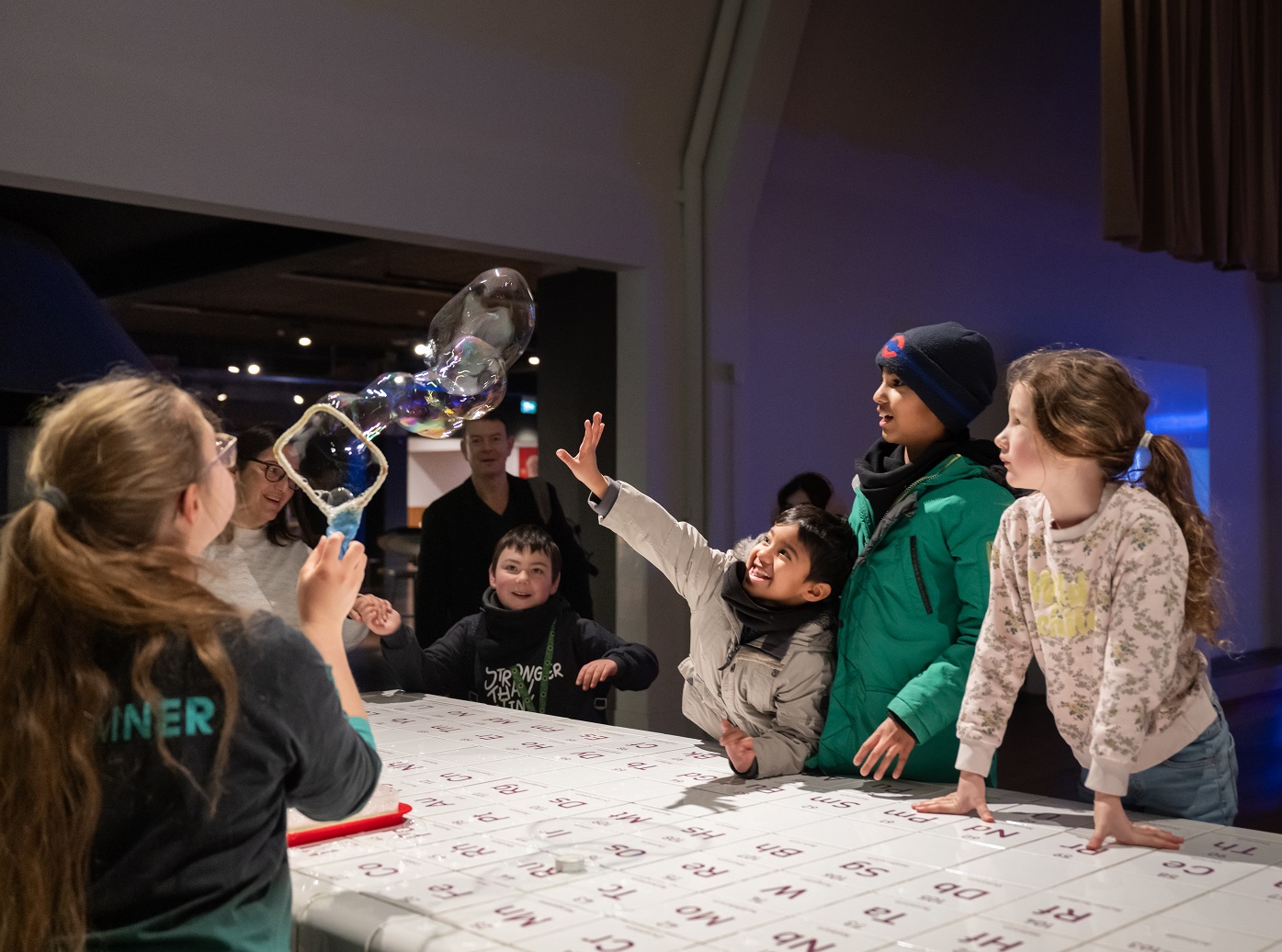
Fiona: Looking ahead, what’s your vision for the future of accessibility in museums?
Claire: My vision for the future is that I don’t need to do this work anymore! Progress has been made, but it takes effort to keep momentum going, particularly with financial challenges.
Innovation needs a tiered approach. For the everyday visitor who might also happen to be neurodivergent might they benefit from a chill out room? You could put on relaxed events with reduced numbers for sensory-sensitive audiences or programmes for special education schools?
There is also a wider ecosystem to be considered, from supported volunteering to work experience programmes. Autistic children don’t stop being autistic at 16, so those next steps are crucial and museums must think about how to support neurodivergent staff.
Museums are uniquely placed to offer opportunities to young autistic people and adults, but equally autistic staff and volunteers bring valuable skills, museums are missing out on a diverse workforce. The work never ends!
The next Early Birds events are on:
Saturday 15 February, 08.00-11.00 and 18.30–21.30.
Saturday 22 March, 08.00 – 11.00.
Early Birds visitors will also have an opportunity to book tickets to lower capacity sessions in Wonderlab and Power Up at a reduced rate.
You can also sign up to our Accessible newsletter to be the first to hear when new dates are announced, and tickets are available. Find out more about Accessibility at the Science Museum here.
Early Birds has been supported since 2014 by The Lord Leonard and Lady Estelle Wolfson Foundation.